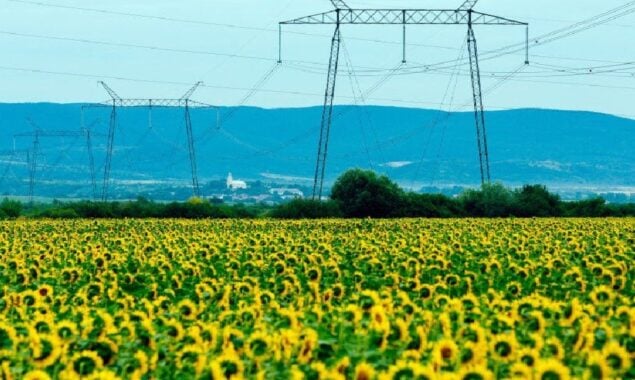Synopsis
The conflict in Ukraine is set to cause the "biggest food price shock" since the 1970s, the World Bank has cautioned.

Prices to spike the highest in 50 years as a result of Ukraine war; World Bank forecast
The conflict in Ukraine is set to cause the “biggest food price shock” since the 1970s, the World Bank has cautioned.
In another conjecture, it said interruption brought about by the contention would add to immense cost ascends for products going from flammable gas to wheat and cotton.
The expansion in costs “is beginning to have exceptionally enormous financial and philanthropic impacts”, Peter Nagle, a co-creator of the report, told.
He expressed “families across the world are feeling the cost for many everyday items emergency”.
“We’re especially stressed over the least fortunate families since they spend a bigger portion of pay on food and energy, so they’re especially powerless against this cost spike,” the senior financial specialist at the World Bank added.
Energy costs are set to increment over half, pushing up bills for families and organizations, the World Bank says.
The greatest ascent will be in the cost of gaseous petrol in Europe, which is set to beyond twofold in cost. Costs are figure to fall one year from now and in 2024, however and still, after all that will stay 15% higher than they were a year ago.
The World Bank said this intends that from the lows of April 2020 until the highs of March this year we have seen “the biggest 23-month expansion in energy costs since the 1973 oil cost climb”, when pressures in the Middle East sent costs taking off.
Comparably oil costs are supposed to stay raised into 2024 with a barrel of the benchmark measure, Brent Crude, projected to average $100 this year, something which will prompt far and wide expansion.
Russia produces around 11% of the world’s oil, the third greatest offer, yet the report said “disturbances coming about because of the conflict are supposed to making an enduring negative difference” as assents imply that unfamiliar organizations leave and admittance to innovation is diminished.
Russia right now gives 40% of the EU’s gas and 27% of its oil, however European states are getting to wean their nations off of provisions from Russia. That has helped move up worldwide costs by driving additional interest for provisions from somewhere else.
The World Bank product viewpoint additionally cautioned numerous food varieties are set to see steep ascents in their expenses. The UN food costs file as of now shows they are at their most elevated since records started 60 quite a while back.
Wheat is gauge to build 42.7% and arrive at new record highs in dollar terms. Other eminent increments will be 33.3% for grain, 20% for soybeans and 29.8% for oils and 41.8% for chicken. These increments mirror the way that commodities from Ukraine and Russia have fallen definitely.
Before the conflict the two nations represented 28.9% of worldwide wheat trades as indicated by JP Morgan, and 60% of worldwide sunflower supplies – a critical fixing in many handled food sources – as per S&P Global.
Costs for other unrefined components including composts, metals and minerals are likewise anticipated to go up. The expenses of lumber, tea and rice are among the couple of expected to fall.
“Wheat is one of the hardest agribusiness commodities to supplant,” as indicated by an exploration note from the Bank of America. It brings up that unfortunate weather patterns in North America and China are probably going to worsen the effect of Ukrainian supplies being decreased, something which will proceed in light of the fact that the conflict has upset the spring establishing season.
The note likewise proposes grain and oilseed shipments from Ukraine have fallen over 80% due to the battling and these lost commodities, throughout the span of a year, “compare to around 10 days of world food supply”.
The CEO of Archer Daniels Midland, one of the world’s four major food product brokers, said he doesn’t anticipate that costs should descend soon.
As the US firm declared a 53% increment in net profit for the initial multi month of this current year, to $1.05bn, Juan Luciano said: “We expect diminished crop supplies – brought about by the feeble Canadian canola crop, the short South American harvests, and presently the interruptions in the Black Sea district – to drive proceeded with snugness in worldwide grain markets for the following couple of years”.
Mr Nagle, from the World Bank, said different nations can assist with addressing the stock deficiency brought about by Ukraine’s conflict in the medium term. Anyway a conjecture 69% increment in manure costs this year signifies “there’s a genuine gamble that as ranchers begin to utilize less composts, horticultural yields will decline”.
For wares by and large, the World Bank report said: “While costs for the most part are supposed to top in 2022, they are to stay a lot higher than recently estimate.”
That’s what it added “the standpoint for product markets relies intensely upon the term of the conflict in Ukraine” and the interruption it causes to supply chains.
For the latest International News Follow BOL News on Google News. Read more on Latest International News on oldsite.bolnews.com
Read More News On
Catch all the International News, Breaking News Event and Latest News Updates on The BOL News
Download The BOL News App to get the Daily News Update & Follow us on Google News.




